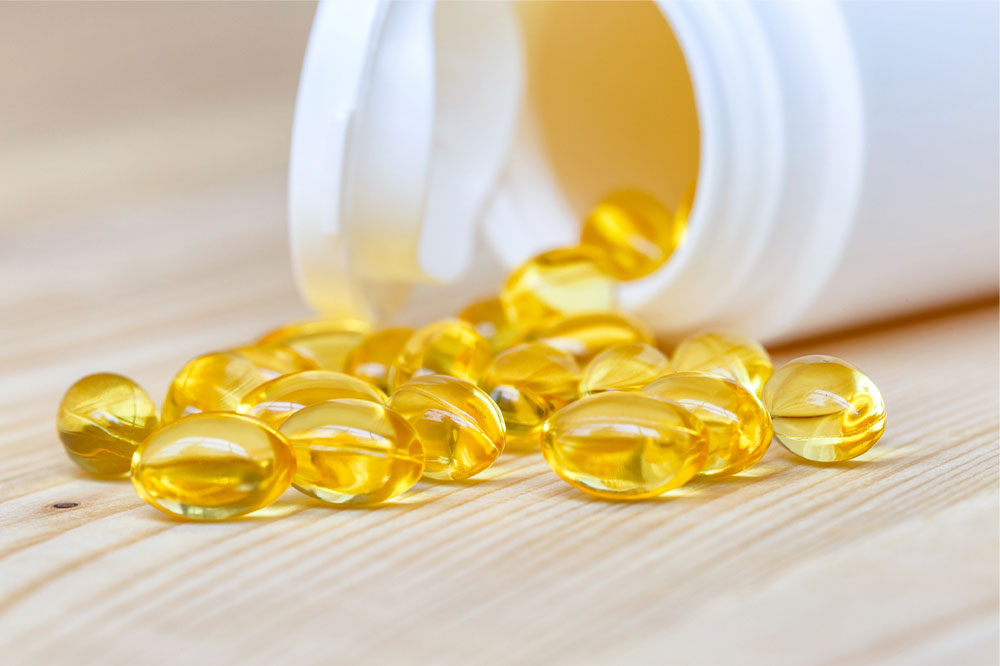Vital Vitamins for Managing Anxiety: A Comprehensive Guide
This comprehensive guide explores essential vitamins that support anxiety management. It discusses various types of anxiety disorders, highlights specific nutrients like B vitamins, vitamin C, A, D, and their food sources, and emphasizes the importance of nutrition in mental health. Combining dietary strategies with therapy can significantly reduce anxiety symptoms and improve overall well-being. The article provides actionable insights into integrating these vitamins into daily life safely and effectively, making it a valuable resource for those seeking complementary approaches to managing anxiety.

Vital Vitamins for Managing Anxiety: A Comprehensive Guide
Maintaining mental well-being is just as crucial as taking care of physical health. With approximately 31% of people worldwide experiencing anxiety disorders at some point in their lives, understanding how nutrition can influence anxiety management is essential. Alongside medical interventions and therapy, proper dietary choices—including the intake of specific vitamins—can play a significant role in alleviating symptoms. Implementing a well-rounded approach that combines nutrition, psychological support, and lifestyle modifications can lead to substantial improvements in quality of life for those affected by anxiety disorders.
Understanding Anxiety Disorders and Their Impact
Anxiety disorders are characterized by persistent feelings of worry, fear, or nervousness that can interfere with daily functioning. These conditions vary in type and severity, including generalized anxiety disorder, panic disorder, social anxiety disorder, and specific phobias. Symptoms often include physical sensations like rapid heartbeat, sweating, trembling, and gastrointestinal discomfort, as well as emotional responses such as dread or apprehension. Triggers can be diverse, often involving stress-inducing situations like job interviews, social gatherings, or conflicts. Recognizing the complex nature of anxiety is essential for effective management and treatment.
Types of Anxiety Disorders:
Generalized Anxiety Disorder (GAD): Chronic anxiety and worry about multiple areas of life
Separation Anxiety: Fear of being apart from loved ones, often seen in children but also affecting adults
Panic Disorder: Recurrent panic attacks with intense physical symptoms and fear of future attacks
Phobias: Persistent, irrational fears of specific objects or situations
Social Anxiety Disorder: Excessive fear of social situations and judgment from others
The Role of Vitamins in Alleviating Anxiety Symptoms
While therapy modalities like cognitive-behavioral therapy (CBT), medication, and lifestyle changes remain primary in anxiety treatment, nutrition also plays a pivotal supportive role. Certain vitamins have been studied and shown to contribute to mental health, helping to reduce anxiety symptoms and promote overall emotional stability. Incorporating these nutrients into your diet can be a proactive strategy to support your mental resilience alongside conventional treatments.
Key Vitamins Supporting Anxiety Relief
Vitamin B1 (Thiamine):
Thiamine is integral to energy metabolism and neurological function. Research indicates that supplementing with 250 mg daily can help alleviate symptoms of anxiety, fatigue, and depression. B1-rich foods include beans, pork, fish, peas, eggs, and fortified cereals, all of which can help maintain optimal levels and support mental clarity.
Vitamin B6:
Adequate B6 intake is linked with lower levels of stress and improved mood regulation. Foods high in B6, such as organ meats, tuna, salmon, chickpeas, and leafy greens, can be incorporated into a balanced diet to promote mental calmness and reduce anxiety episodes.
Vitamin B3 (Niacin):
Niacin contributes to serotonin synthesis, which plays a critical role in mood stabilization. It is found abundantly in poultry, fish, cereals, bananas, and legumes. Therapeutic doses typically range from 1000 to 3000 mg per day, but consulting a healthcare provider is recommended before high-dose supplementation.
Vitamin B5 (Pantothenic Acid):
B5 supports adrenal function, helping the body to better handle stress. Sources include organ meats, mushrooms, avocados, and sweet potatoes, all of which can be included in a stress-reducing diet.
Vitamin C:
Known for its immune-boosting properties, Vitamin C also reduces cortisol levels, the hormone associated with stress. Regular consumption of citrus fruits, peppers, berries, and greens can help manage anxiety and foster emotional resilience.
Vitamin B12:
Deficiency in B12 has been linked to increased anxiety and mood disturbances. Ensuring adequate intake through dairy products, eggs, seafood, poultry, and fortified cereals helps support nerve health and emotional well-being.
Vitamin A:
Essential for nervous system health, Vitamin A, especially in its beta-carotene form, supports stress reduction. Carrots, spinach, red peppers, and sweet potatoes are excellent sources, along with liver and eggs for additional nutrient density.
Vitamin D:
Low levels of Vitamin D are associated with higher anxiety risks. Sun exposure helps synthesize Vitamin D in the skin, and dietary sources like fortified orange juice, fatty fish such as salmon and sardines, and liver provide ongoing support for mood regulation.
Incorporating these vitamins into your diet, alongside professional treatment and lifestyle adjustments, can be a powerful approach to managing anxiety symptoms. Always consult with healthcare professionals before starting any supplement regimen to tailor the most effective and safe treatment plan for your specific needs.





